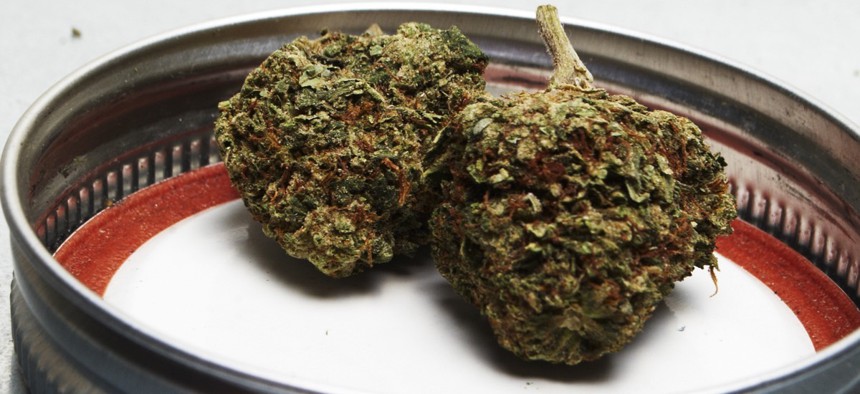Feds Seek to Stop Multi-State Legal Fight Involving Colorado’s Marijuana Laws

Doug Shutter / Shutterstock.com
The U.S. solicitor general is urging the Supreme Court to reject a joint lawsuit filed by Nebraska and Oklahoma against legalized weed across state lines.
Weighing in on a high profile dispute over legalized marijuana, the Obama administration is urging the U.S. Supreme Court to not take up a case Nebraska and Oklahoma filed last year against Colorado over the state’s recreational pot laws.
Nebraska and Oklahoma filed the case in the U.S. Supreme Court last December, arguing that Colorado’s system allowing for legal recreational marijuana “created a dangerous gap in the federal drug control system enacted by the United States Congress.” The states also contend that pot from Colorado is penetrating their borders, creating crime and upping budget costs.
The Obama administration is not endorsing the legalization of marijuana. Instead, U.S. Solicitor General Donald B. Verrilli, Jr. said in a brief filed on Wednesday that the legal complaint against Colorado did not meet the criteria to warrant a direct hearing by the high court.
“Entertaining the type of dispute at issue here—essentially that one State’s laws make it more likely that third parties will violate federal and state law in another State—would represent a substantial and unwarranted expansion of this Court’s original jurisdiction,” Verrilli wrote.
States are able to sue one another in the Supreme Court without their cases wending through lower courts first. In May, the court invited Verrilli to file a brief in the case expressing the views of the federal government. The solicitor general is the Obama administration’s top appellate lawyer.
In his brief, Verrilli pointed out that Nebraska and Oklahoma do not claim that Colorado has directed or authorized anyone to transport marijuana across state lines.
“At most, they have alleged that third-party lawbreakers are inflicting those injuries, and that Colorado’s legal regime makes it easier for them to do so,” he wrote. Therefore, Verrilli said, Nebraska and Oklahoma have not sufficiently alleged that Colorado has inflicted the sort of “direct injury” that would justify the case going straight to the Supreme Court.
Voters in Colorado approved a ballot measure, Amendment 64, in 2012, which made it legal for people over 21 to possess limited amounts of pot. Sales at state-regulated retail stores began in January 2014. Alaska, Oregon, Washington state and the District of Columbia have also legalized recreational marijuana use, even though the substance remains outlawed at the federal level under the Controlled Substances Act.
Verrilli’s brief noted a 2013 Justice Department memorandum that outlined “particularly important” federal enforcement priorities related to marijuana “regardless of state law.”
These priorities included preventing the diversion of pot from states where it is legal to other states; preventing revenue from the sale of it from going to criminals and keeping marijuana out of the hands of minors. “Outside of these enforcement priorities,” the memorandum explained, “the federal government has traditionally relied on states and local law enforcement agencies to address marijuana activity through enforcement of their own narcotics laws.”
Bill Lucia is a Reporter for Government Executive’s Route Fifty.
NEXT STORY: Why NY.gov’s Pageviews Quadrupled Last Year






